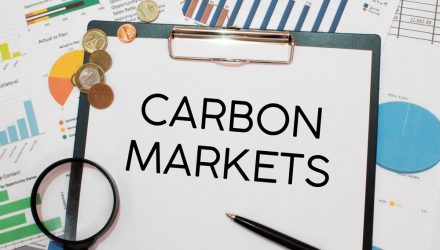Farmers in the U.S. are boosting their revenue through the carbon credit markets as business start-ups like Indigo AG measure their crops to determine how many carbon credits would be created, reported CNBC.
The credits are verified by the Climate Action Reserve, an organization that works to ensure that the North American market is transparent and has integrity and financial value. The farmers that are partnered with Indigo AG receive 75% of the profits from selling the credits, and Indigo AG keeps the other 25%.
The first group of credits from Indigo AG was released to markets several weeks ago — a total of 20,000 tons — and buyers included The North Face, JPMorgan Chase, and Barclays.
“What we really focus on is: How do we bring new revenue streams to the farmer as they make this journey to sustainability?” said Indigo Ag CEO Ron Hovsepian.
Farming is a heavy contributor to climate change and one of the most at-risk sectors; farmers that participate are encouraged to reduce their tillage and to plant cover crops that will contribute to healthier soil, better water quality, and increased biodiversity. The first client of Indigo AG, a farmer from Indiana named Lance Unger, made $52,000 in his first year and anticipates higher revenue looking ahead as carbon prices increase.
“They’re not making any more land, so we’ve just got to try to produce more off the same type of land. If we can take and make our farm better, make our ground better and help out the environment and still get paid for it at the same time. I mean, it’s just something that’s an extra added benefit,” said Unger.
Investing in the Voluntary Carbon Markets With KSET
The KraneShares Global Carbon Offset Strategy ETF (KSET) is the first U.S.-listed ETF offering investors exposure to the voluntary carbon markets. The fund is structured to offer global coverage of voluntary carbon markets by tracking carbon offset futures contracts comprised of nature-based global emissions offsets (N-GEOs) as well as global emissions offsets (GEOs) that trade via CME Group.
Projects that can be found within voluntary carbon markets include traditional approaches to carbon capture through reforestation and similar endeavors, as well as more recent, technology-driven ones such as direct air capture. Start-ups like Indigo AG contribute to the pool of credits while also creating broader sustainability in a sector that is a heavy contributor to climate change.
N-GEOs adhere to the Verified Carbon Standard, which set the requirements for projects within Agriculture, Forestry, and Other Land Use (AFOLU). The N-GEOs are also certified by the Verra Registry’s Climate Community and Biodiversity Standard, which selects projects that work towards climate change goals, support local communities and smallholders, and work to protect and conserve biodiversity. The GEOs meet Carbon Offsetting and Reduction Scheme for International Aviation (CORSIA) from VCS, the American Carbon Registry, or the Climate Action Reserve.
KSET is structured so that new markets will be included within the fund as they scale to size, and it carries an expense ratio of 0.79%.
For more news, information, and strategy, visit the Climate Insights Channel.

